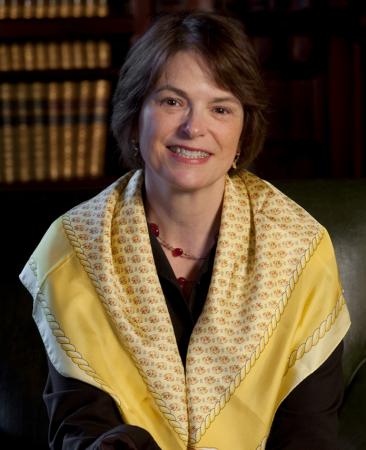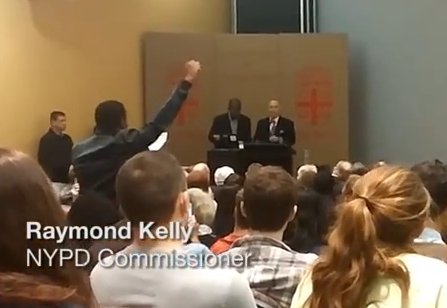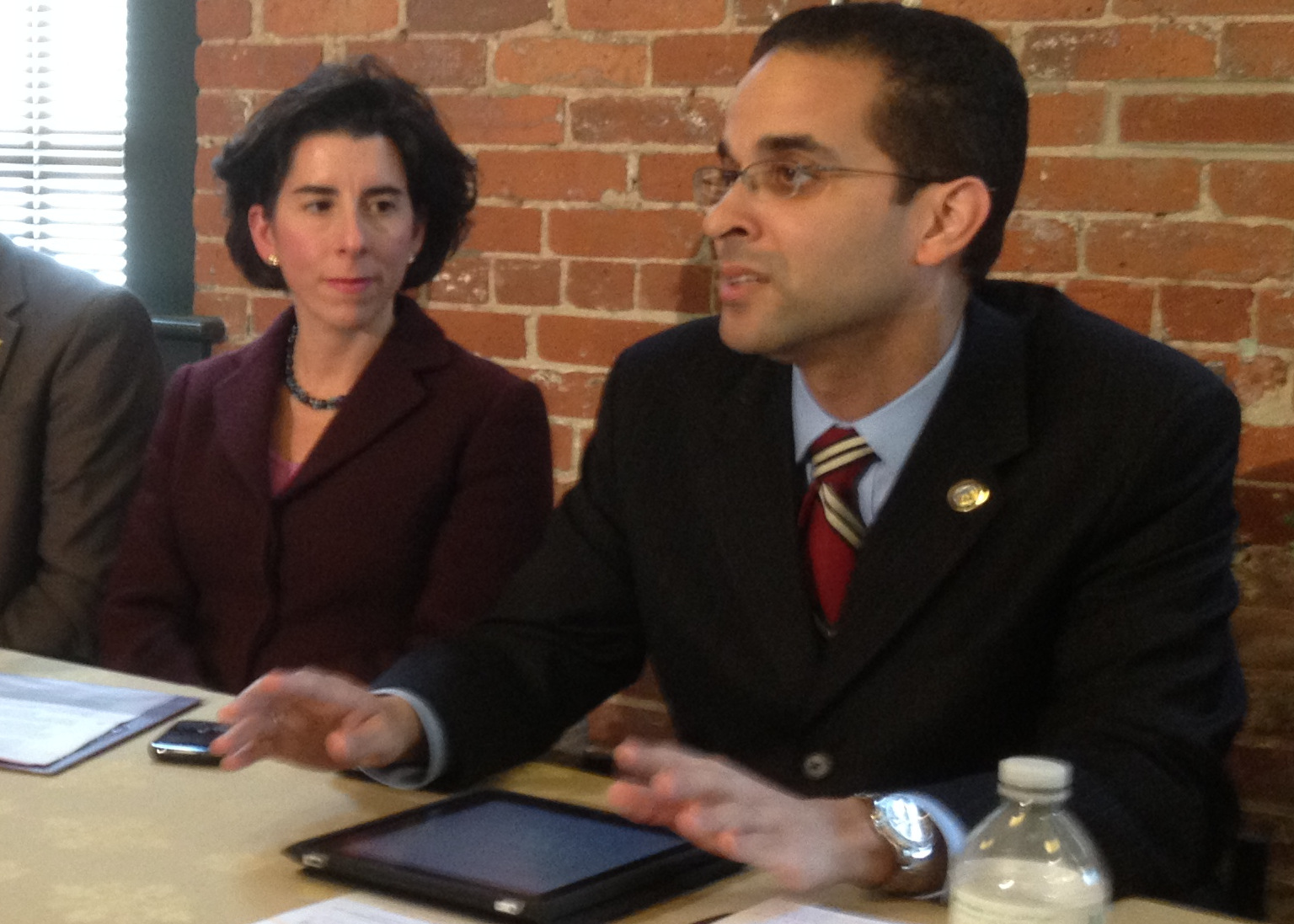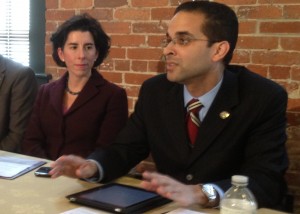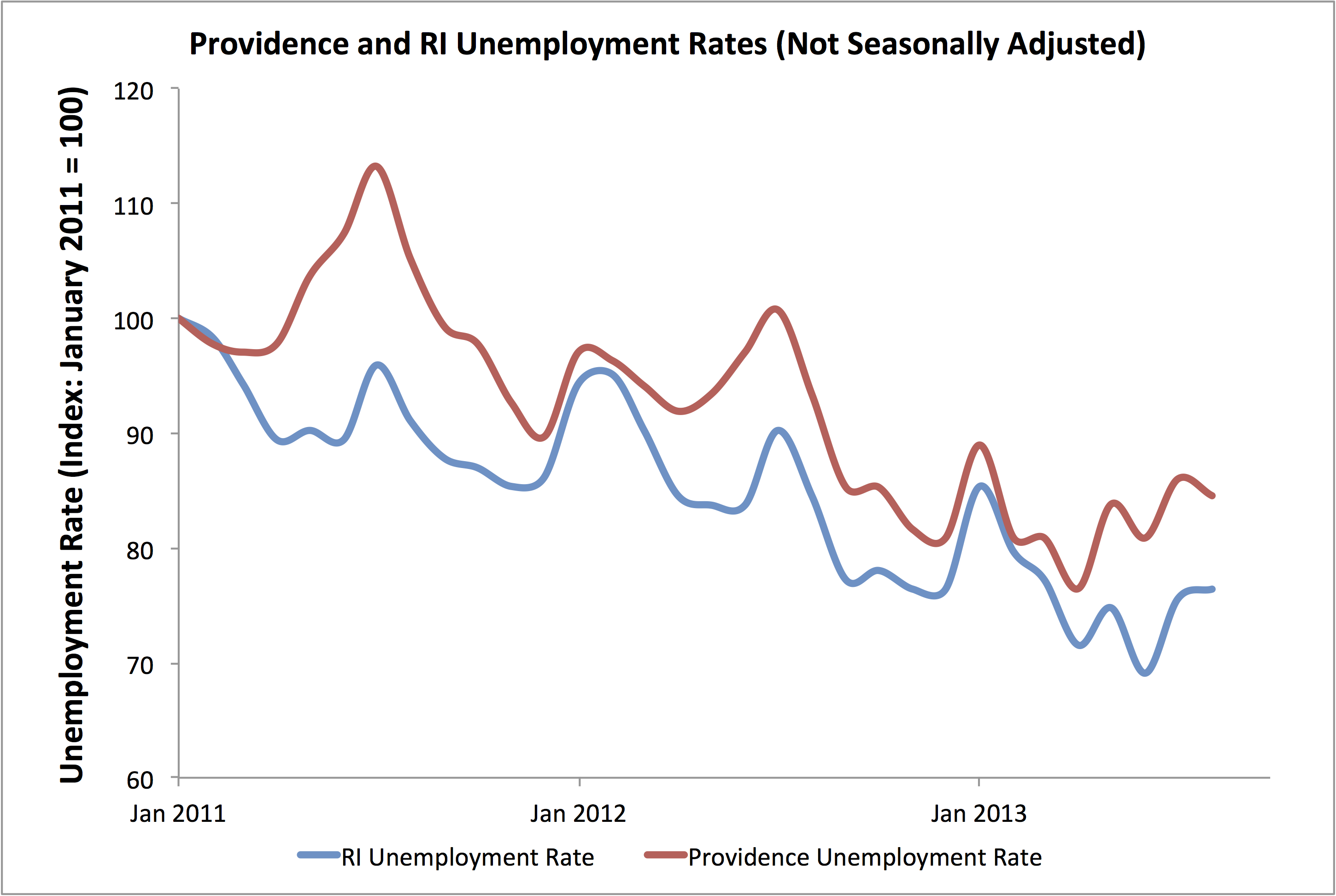 Every few years, protestors shout down a conservative speaker at an American University. Every few years, rancorous debate ensues. Yet every few years, the warring sides simply yell past one another; the opponents of the ‘shout-down’ uphold the sanctity of ‘free speech’ while the protestors decry the awful ‘real world impact’ of the conservative speaker’s message.
Every few years, protestors shout down a conservative speaker at an American University. Every few years, rancorous debate ensues. Yet every few years, the warring sides simply yell past one another; the opponents of the ‘shout-down’ uphold the sanctity of ‘free speech’ while the protestors decry the awful ‘real world impact’ of the conservative speaker’s message.
In the wake of the Brown University shout-down of Ray Kelly, champion of the NYPD’s racist stop-and-frisk policy and racial profiling in general, the debate has resurfaced. Rather than talking past the anti-protestors’ arguments, they need to be addressed directly. The prototypical argument in denouncing the protestors is not a defense of Ray Kelly’s racism. It is twofold: First, that a free-flowing discourse on the matter will allow all viewpoints to be weighed and justice to inevitably emerge victorious on its merits. Second, that stopping a bigot from speaking in the name of freedom is self-defeating as it devolves our democratic society into tyranny.
The twofold argument against the protestors stems from two central myths of neoliberalism.
The argument for free discourse as the enlightened path to justice ignores that direct action protest is primarily responsible for most of the achievements we would consider ‘progress’ historically (think civil rights, workers’ rights, suffrage, etc.), not the free exchange of ideas. The claim that silencing speech in the name of freedom is self-defeating indulges in the myth of the pre-existence of a free society in which freedom of speech must be preciously safeguarded, while ignoring the woeful shortcomings of freedom of speech in our society which must be addressed before there is anything worth protecting.
Critics of the protest repeatedly denounced direct action in favor of ideological debate as the path to social justice. “It would have been more effective to take part in a discussion rather than flat out refuse to have him speak,” declared one horrified student to the Brown Daily Herald. Similarly, Brown University President Christina Paxson labeled the protest a detrimental “affront to democratic civil society,” and instead advocated “intellectual rigor, careful analysis, and…respectful dialogue and discussion.”
Yet the implication that masterful debate is the engine of social progress could not be more historically unfounded. Only in the fairy tale histories of those interested in discouraging social resistance does ‘respectful dialogue’ play a decisive role in struggles against injustice.
The eight-hour workday is not a product of an incisive question-and-answer session with American robber barons. Rather, hundreds of thousands of workers conducted general strikes during the nineteenth century, marched in the face of military gunfire at Haymarket Square in 1886, and occupied scores of factories in the 1930’s before the eight-hour work day became American law.
Jim Crow was not defeated with the moral suasion of Martin Luther King, Jr.’s speeches. Rather, hundreds of thousands marched on Washington, suffered through imprisonment by racist Southern law enforcement, and repeatedly staged disruptive protests to win basic civil rights.
On a more international scale, Colonialism, that somehow-oft-forgotten tyranny that plagued most of the globe for centuries, did not cease thanks to open academic dialogue. Bloody resistance, from Algeria to Vietnam to Panama to Cuba to Egypt to the Philippines to Cameroon and to many other countries, was the necessary tool that unlocked colonial shackles.
Different specific tactics have worked in different contexts, but one aspect remains constant: The free flow of ideas and dialogue, by itself, has rarely been enough to generate social progress. It is not that ideas entirely lack social power, but they have never been sufficient in winning concessions from those in power to the oppressed. Herein lies neoliberal myth number one—that a liberal free-market society will inexorably and inherently march towards greater freedom. To the contrary, direct action has always proved necessary.
Yet there are many critics of the protestors who do not claim Ray Kelly’s policies can be defeated with sharp debate. Instead, they argue that any protest in the name of freedom which blocks the speech of another is self-defeating, causing more damage to a free society by ‘silencing’ another than any potential positive effect of the protest. The protestors, the argument goes, tack society back to totalitarian days of censorship rather than forward to greater freedom. The protestors, however well intentioned, have pedantically thwarted our cherished liberal democracy by imposing their will on others.
The premise of this argument is neoliberal myth number two—that we live in a society with ‘freedom of speech’ so great it must be protected at all costs. This premise stems from an extremely limited conception of ‘freedom of speech.’ Free speech should not be considered the mere ability to speak freely and inconsequentially in a vacuum, but rather the ability to have one’s voice heard equally. Due to the nature of private media and campaign finance in American society, this ability is woefully lopsided as political and economic barriers abound. Those with money easily have their voices heard through media and politics, those without have no such freedom. There is a certain irony (and garish privilege) of upper-class Ivy Leaguers proclaiming the sanctity of a freedom of speech so contingent upon wealth and political power.
There is an even greater irony that the fight for true freedom of speech, if history is any indicator, must entail more direct action against defenders of the status quo such as Ray Kelly. To denounce such action out of indulgence in the neoliberal myth of a sacrosanct, already existing, freedom of speech is to condemn the millions in this country with no meaningful voice to eternal silence.
Every few years, an advocate of oppression is shouted down. Every few years, the protestors are denounced. They are asked to trust open, ‘civil’ dialogue to stop oppression, despite a historical record of struggle and progress that speaks overwhelmingly to the contrary. They are asked to restrain their protest for freedom so to protect American freedom of speech, despite the undeniable fact that our private media and post-Citizens United political system hear only dollars, not the voices of the masses. Some will claim that both sides have the same goal, freedom, but merely differ on tactics. Yet the historical record is too clear and the growing dysfunctions in our democracy too gross to take any such claims as sincere. In a few years, when protestors shout down another oppressive conservative, we will be forced to lucidly choose which side we are on: The oppressors or the protestors. The status quo or progress.
 Rhode Island lost it’s chance to become the first place on the East Coast to legalize marijuana yesterday. Portland, Maine gets that honor after 70 percent of the voters passed a ballot measure that ends pot prohibition in Maine’s largest city.
Rhode Island lost it’s chance to become the first place on the East Coast to legalize marijuana yesterday. Portland, Maine gets that honor after 70 percent of the voters passed a ballot measure that ends pot prohibition in Maine’s largest city.
